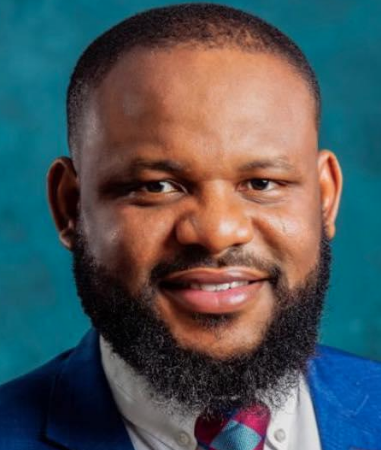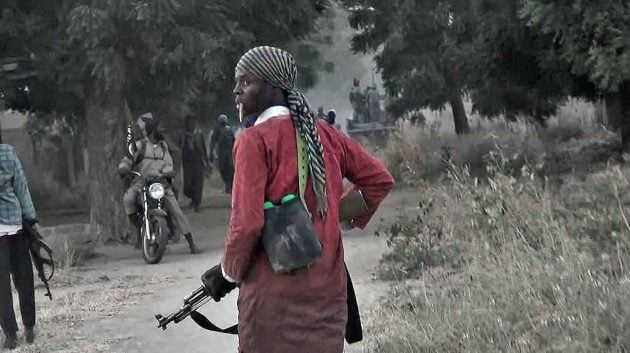Boko Haram insurgents
The renewed allegations that Christians in northern Nigeria are victims of genocide have collided with an unexpected geopolitical force: U.S. President threatening to “go into Nigeria, guns blazing,” and members of the US Congress purportedly advancing resolutions condemning the Nigerian government’s failure to protect Christian communities. It is rare for atrocity-crime debates in Africa to be so openly entangled with the foreign-policy theatrics of a major power. But this moment demands clarity, not theatrics. And it requires us to anchor the conversation in the discipline of international criminal law and the responsibilities imposed on Nigeria, while interrogating the implications of the increasingly aggressive tone from Washington.
The legal threshold for genocide remains demanding. It is not enough that Christians have suffered mass killings, destruction of villages, displacement, or deeply traumatising patterns of attack. The law requires evidence of specific intent to destroy the group as such. But the fact that this threshold is high does not end the inquiry. What triggers international responsibility is not merely the existence of mass atrocity crimes; it is the State’s knowledge of serious risk and its failure to act decisively. For decades, Nigeria has been confronted with patterns of violence in which religious identity frequently intersects with geography, indigeneity, resource conflict, and insurgency. To assert categorically that these dynamics cannot amount to genocide is intellectually dishonest. To label them genocide without rigorous assessment is equally irresponsible. The duty of the Nigerian state is neither to swat away concerns nor to bow to politicised interpretations from abroad. Its duty is to investigate deliberately, prevent systematically, and prosecute credibly.
It is here that the threatened U.S. intervention becomes revealing. Trump’s declarations that he may deploy American troops into Nigeria or launch airstrikes in defence of Christians are framed as a moral response to atrocity. But in the architecture of international criminal law, they function as a symptom of something more basic: the perception that Nigeria is either unwilling or unable to provide effective protection. That perception, whether fair or not, is precisely what activates the logic of complementarity. Where a State demonstrates neither capacity nor political will to protect vulnerable communities, external actors begin contemplating forms of intervention. This is not a sign of principled solidarity. It is a sign that domestic accountability structures are eroding in the eyes of the world.
But there is a second layer that must be acknowledged. External military intervention in the name of “preventing genocide” has its own disturbing history. A history filled with selective outrage, inconsistent thresholds, and interventions whose humanitarian justifications mask geopolitical opportunism. Trump’s threats, echoed by certain members of the U.S. House of Representatives, reflect a domestic political agenda in the United States rather than a principled application of international law. They instrumentalise Christian suffering within Nigeria to advance ideological narratives at home. And yet, even politically motivated pressure can have legal consequences for Nigeria, because it exposes the vacuum that international criminal law expects the State itself to fill.
Advertisement
Nigeria’s responsibility, therefore, is not merely to dispute labels or reject foreign condescension. Its responsibility is to demonstrate, through verifiable action, that it is fulfilling its obligations under the Genocide Convention and under customary international law to prevent atrocity crimes. That includes recognising risk patterns, addressing impunity, strengthening early-warning systems, and ensuring that perpetrators are apprehended and prosecuted. Abstract condemnations from Abuja are no longer sufficient. In an environment where the international community is openly debating whether genocide is unfolding, silence and inertia amount to acquiescence, not only politically, but legally.
Regional complementarity adds a third dimension to this landscape. Africa has spent two decades building a layered justice architecture designed precisely to avoid the need for external intervention. The African Court, the ECOWAS Court, and sub-regional mechanisms exist because African states insisted that justice, even for atrocity crimes, must not be ceded entirely to outside powers. For Nigeria, invoking sovereignty against Washington while failing to activate regional justice mechanisms is a strategic contradiction. A state that rejects U.S. intervention but refuses to utilise or strengthen regional avenues for accountability weakens its own credibility and invites the very external involvement it condemns.
The core question now is not whether Christians in Nigeria are victims of genocide. That is a legal determination that must follow rigorous investigation. The core question is whether Nigeria is meeting its obligations to prevent and punish atrocity crimes, and whether its inaction is creating a vacuum in which external powers, often with motives far removed from justice, feel justified to step in. The insistence of Trump and members of Congress on framing the violence exclusively as Christian genocide distorts the complex realities on the ground. But their interventions highlight a deeper truth: when a State is perceived to have lost control of protection, narratives of intervention, however misguided, begin to proliferate.
Advertisement
Nigeria cannot control how foreign leaders weaponise its security crisis for their own politics. But it can control its response. Effective accountability, credible prosecutions, and meaningful protection for vulnerable communities are not merely domestic governance responsibilities; they are the most powerful antidote to external interference. If Nigeria wishes to reject the notion that it is a failed protector of its citizens, then it must demonstrate that commitment with a seriousness that has, so far, been lacking.
In the end, the legal and geopolitical implications converge on one point: atrocity crimes, whether framed as genocide or not, do not remain domestic problems when States fail to confront them. They become globalised. They invite narratives of rescue, coercion, and intervention. And they threaten to displace Africa’s emerging regional justice model. Nigeria stands at a crossroads, and the world is watching. Whether it responds with defensiveness or with decisive, rights-based action will determine not only how it is judged under international law, but how much space it leaves for others to dictate the terms of its crisis.
Dr. Seun Bakare holds a PhD in international criminal law from Leiden University in the Netherlands. He is the author of ‘Regional Complementarity in International Criminal Law: Making Sense of the Four-Tiered Justice Paradigm’.
Advertisement
Views expressed by contributors are strictly personal and not of TheCable.


